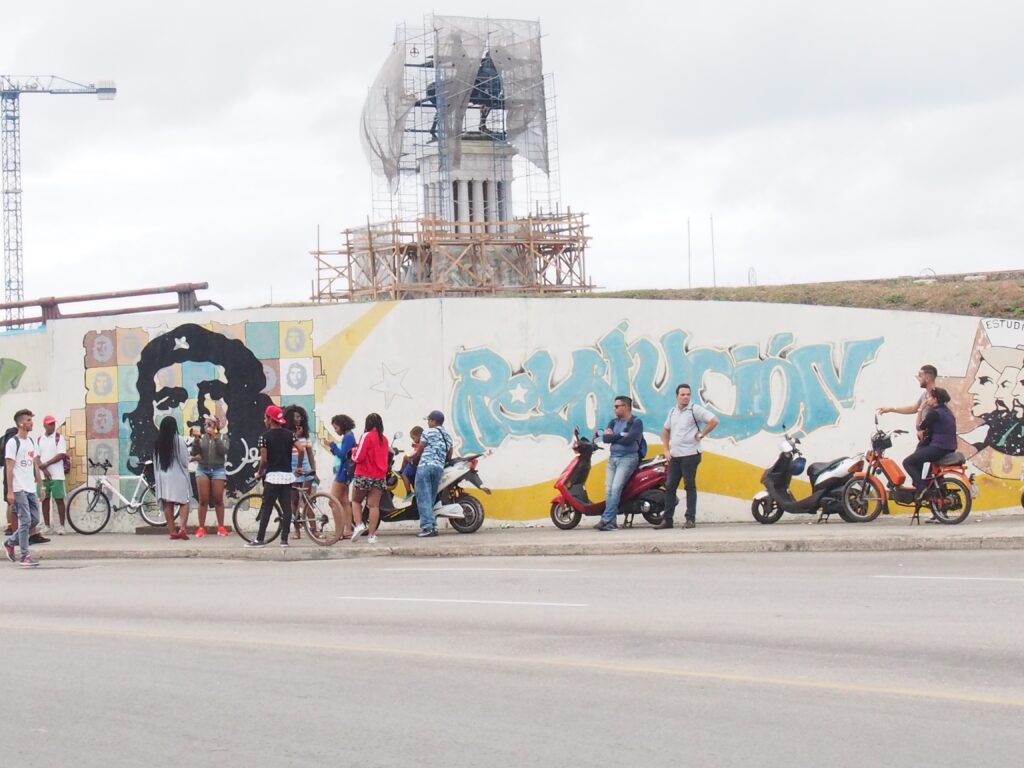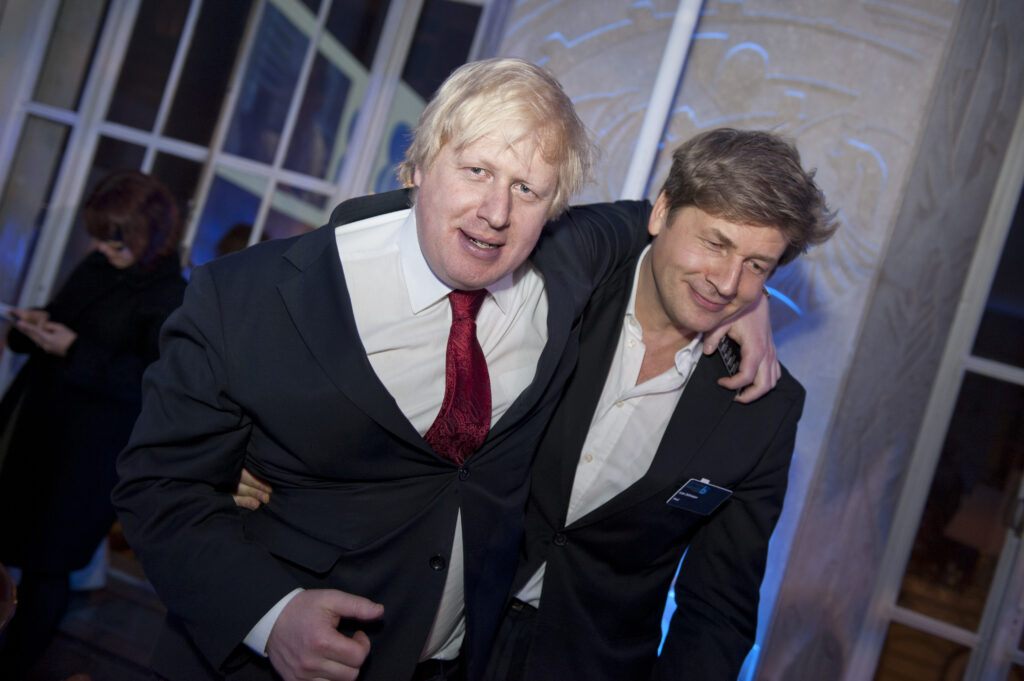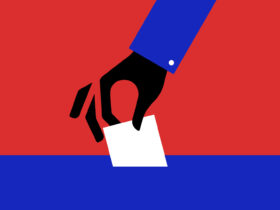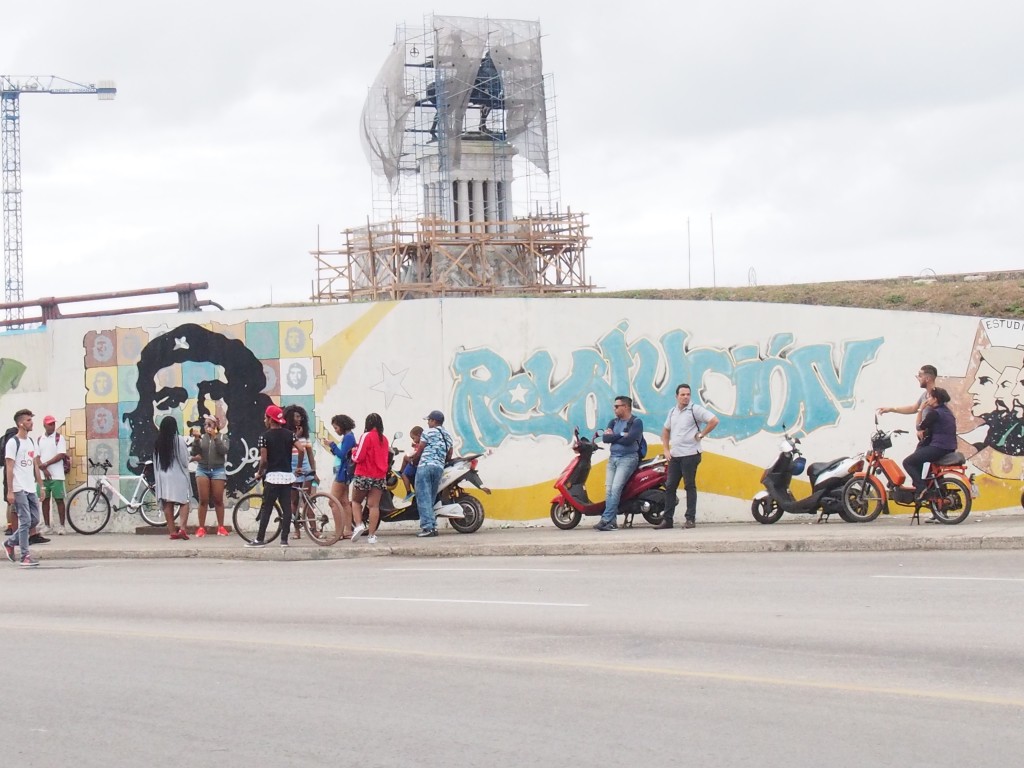
At the top of a hill in Cuba’s Vedado district sits the island nation’s oldest university. A statue of the Alma Mater towers over a steep flight of stairs, and through the pillars behind her is the sprawling courtyard hub where university students from seven different faculties loiter between classes—they chat, meet in student organizations and finish assignments on their laptops. The University of Havana’s prestige is also tied to Cuba’s national identity; the campus is a relic of the Revolution. It is where Fidel Castro himself studied law, and the student protests that played a prominent role are commemorated with a tank that celebrates the toppling of the Batista regime.
But a stroll around campus in 2017 reveals that it is also a mirror to the clunkiness of old communist economic planning, though founded on persistently relevant values, in a milieu of active, entrepreneurial and tech-savvy youth.
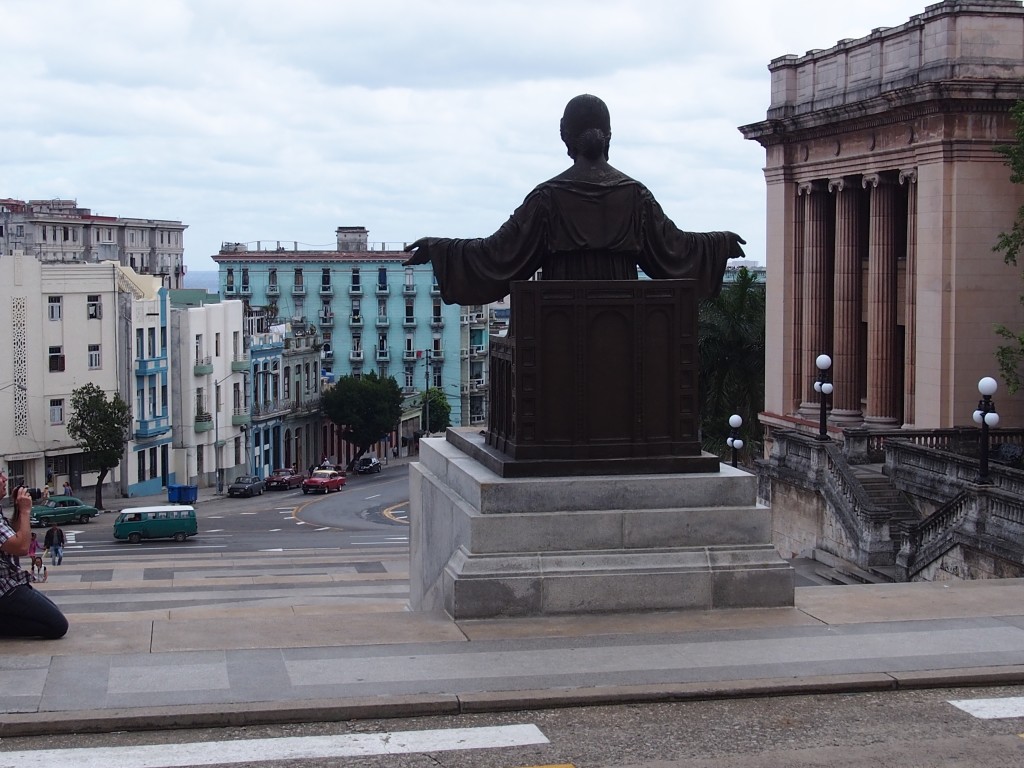
Cuban millennials have a unique vantage point in the development narrative of their country. Recent changes—namely a new foreign investment law and increased private business quotas—in tandem with access to the dollar, have led to the emergence of a middle class. Young people are witnessing a transition not only in their own economy, but in a global economy where Cuba’s participation is increasing. Moving forward, millennials will be crucial in guiding the evolution of the Revolution’s values domestically, and in determining Cuba’s economic niche internationally.
The Changing Landscape
On a macro scale, tangible traces of the transition include the special economic development ZED Mariel. Not to be confused with a free trade zone (FTZ), the special area built around the port is better conceived as a value-added zone, which hosts foreign multinationals with the objective of adding exports to the economy. Here companies like Unilever, British American Tobacco, and (coming soon) Nestle are required to satisfy objectives like replacing imports, meeting export quotas, and creating jobs for Cubans. These companies not only gain access to an untapped market, but since 2014 also receive the new tax and ownership incentives implemented by Law 118 for foreign investment.
Another area of notable growth is Cuban biotech. Cuba’s advances in healthcare and by extension, medical technology, provide the foundation for value-added ventures. For example, the US Roswell Park Cancer Institute recently entered a joint venture with a Cuban commercial firm to begin exporting Cuban-designed cancer vaccines to the US market.
But according to the Cuba Standard editor, Johannes Werner, the “bread and butter” and the “real cash” in the Cuban economy is in the growing number of small enterprises. Faced with these developments, university students and private business people alike have strong opinions on topics covering economic changes, including US-Cuba relations, the future of Cuban tourism and entrepreneurship, the principle of competition, and the rise of populism in other countries.
On Entrepreneurship
Marian, a third-year economics student at the University of Havana, recognizes the shift in “productive relations” taking place in the Cuban economy. She perceives a legal and regulatory framework that is expanding to include transactions that were seen unfavorably for a long time.
“Economic relationships are happening whether you want them to or not. If there’s a demand, there’s going to be a response to that demand. And, if there’s a law supporting these relationships, it’s a way to better control them, especially if they’re por debajo del talon or por la izquierda. Those are expressions we use for transactions that aren’t…legal.”
Here she refers to private transactions that, technically, occur outside the law. Or at least, they used to. For decades, entrepreneurship was unheard of, as the economy functioned only in terms of state enterprises, and “working for the state.” Now, entrepreneurship is visible in the private restaurant—paladares—and hospitality ventures that help Cubans enter the particularly lucrative tourism industry.
Federico*, a young computer engineer who works at the University of Havana, describes the nature of old communist planning. Before, every single enterprise corresponded to an industrial classification that fell under the jurisdiction of a ministry. Each year, ministries were allocated funds to operate their enterprises and employ workers. The only thing private, according to Federico, were homes. However, this model has been in flux for the last two decades.
“Some years ago, at the beginning of the 90s, privatization opened up a bit. Slowly, they started to allow private businesses, like small cafeterias for example. Then, four or five years ago, we started the reforms, or economic adjustments. One thing they did was increase the quotas and the industries open for privatization.”
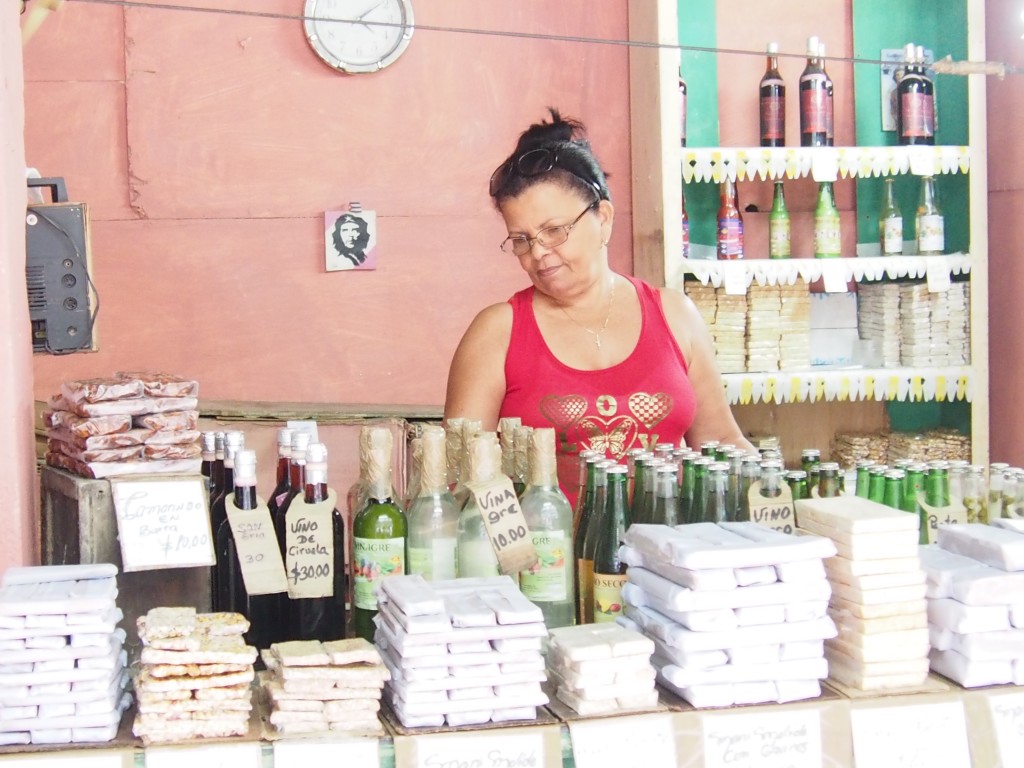
Within these expanded quotas, Cubans apply for licenses to own and operate a private enterprise, described by Federico as, “some more serious restaurants, with better pay. It’s helped the economy quite a bit. The biggest change is the addition of new jobs that don’t rely on the state, and the state isn’t obligated to offer those jobs.”
Marian believes economic adjustments, like the expanded quotas, form part of a more realistic government approach to economic relationships.
“If you legalize these transactions, you add more freedom to what’s already happening. It gives you a mechanism to quantify these exchanges and understand what’s really happening—not get false economic indicators. It also incentivizes production, people, the emergence of technology, and the economy can grow more quickly. We know this is happening; Cuba’s GDP grew 0.9% this year, and for a country like us it’s something important.”
Despite these positive changes, entrepreneurship, as promoted by the government, is evidently still nascent. Frederico notes:
“Maybe one day the stake in the economy held by private businesses will increase. But right now, it’s been low for a while. I heard on TV that it hasn’t even reached 20 percent.”
On Tourism
Many of the private business licenses issued are tied to tourism. As a trustworthy source of revenue, tourism holds a certain sanctity in the Cuban economy; yet Cubans also have a distinct conception of what a tourist’s objective should be. Luis is a jovial entrepreneur who operates a private business offering tour services.
“This,” while pointing to a spindly tree with iridescent red bark, “is what we call the tourist tree. Any idea why? Because if you leave a Canadian on a beach in Varadero for a weekend, he’ll end up looking exactly like that!”
Cuba has been a spring break spot for many college-aged Canadians for the last decade. Yet this type of activity—tanning, relaxing in resorts and partying—is lightly mocked as superficial beach tourism, or turismo de sol y playa by most Cubans, despite the engine of growth it represents for the economy.
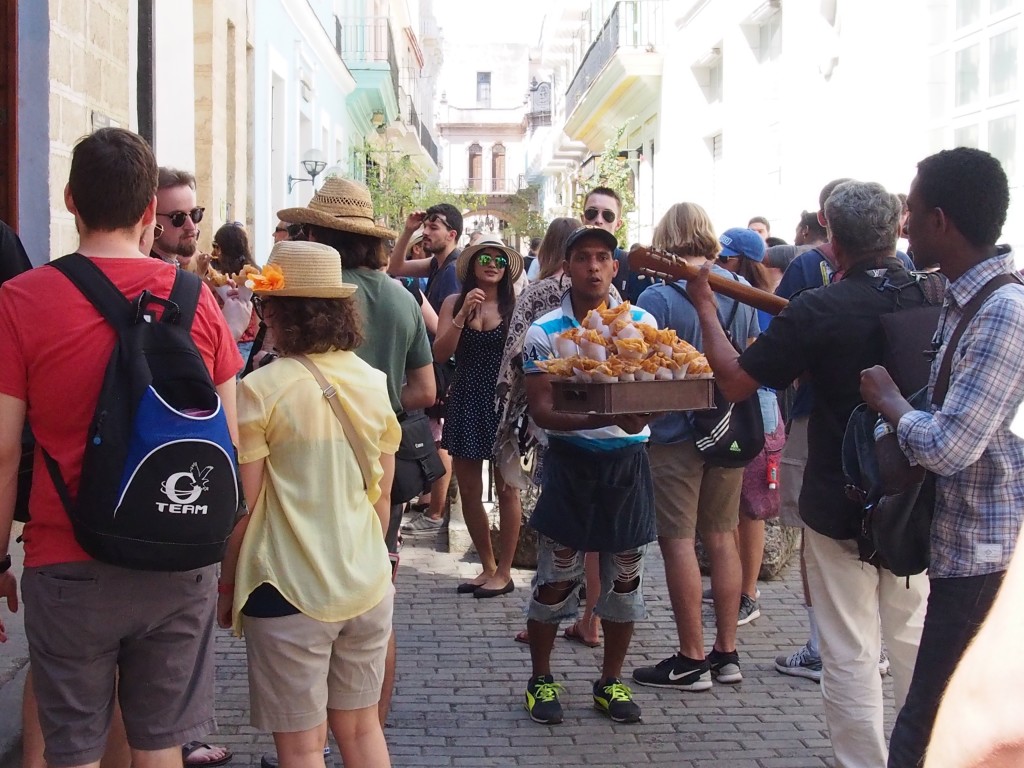
“Currently tourism is one of the country’s main sources of revenue, especially from foreign exchange,” Marian said. The biggest tourist markets are Canada, France and Germany. “In the last few years you could consider it the motor running the economy. It wasn’t always like this, but these days it is,” she said.
Olivia, another student at the University of Havana, selected tourism as her field of study.
“The most important thing in Cuba is the type of tourism we promote. We’re trying to promote other types of tourism, like cultural, patrimonial, and nature trips, to help people travel for more meaningful reasons. It also industrializes regions…we’re trying to create infrastructure to be able to receive larger quantities of people, and so they enjoy their time here.”
At the same time, there are challenges awaiting Cuba’s tourism as it continues to grow and reach new markets—most recently, the U.S. Luis worries Cuba’s infrastructure is unprepared to accommodate the expanding inflow of people. Werner cites the “mushrooming” of privately owned rooms for rent, which represents an expanded hospitality capacity, but does little to offset Luis’s concerns regarding cramped, dilapidated sidewalks and the dearth of consumer goods stores and globally recognized brands to meet tourists’ demands.
From a domestic perspective, as tourism experiences an exciting and tangible boom, its impact on the economy, and on the day-to-day activities of Cubans themselves, becomes less obvious. Sumptuous hotels with daily rates in the hundreds, are noticeably detached from local Cuban realities.
“People are starting to ask, now, ‘Where is the money?’” Rolando said. “Because [Cuba gets] many tourists every year and people don’t see the money. Maybe [it’s for] new hotels for tourists, but for the Cuban people, you can see the buildings, you can see antiquity, we are living in the 50s still. That’s the reality of Cuba,” he said.
On Donald Trump
Despite his historic visit, and the important steps he took in re-establishing US-Cuba relations, the legacy of former president Barack Obama’s efforts is now ambiguous as Donald Trump’s election casts a shadow of uncertainty over it.
For Cuban millennials, many of whom saw hope in doors opening that were previously “not only shut, but sealed,” the results of the election put these positive steps in limbo.
“At the time, many Cubans said to ourselves, ‘Oh how nice, Obama’s government is going down a new path, and we shouldn’t lose hold of our objectives, but this could really be a good thing,’” Federico said. “Now, with the regime change, I don’t think anyone knows what will happen next. A lot of people are very scared,” he said.
Other students, like Marian, perceive an international threat posed by the trend of overly nationalist individuals like Trump as heads of state.
“Things like xenophobia and neo-fascism have resurfaced in many parts of the world, not just in the US. But instead of everyone standing up to them, since both have already had their day in history, people are choosing to support these causes. In France it’s almost like Trump’s same speech is going around in French. When you hear that kind of stuff, it’s hard to get excited for what’s coming in the near future.”
Where to Next?
U of Havana’s bookstore still displays books on Latin American economic development from the 1980s. An exchange student studying economics is taking classes with titles like “Leninism” and “Tendencies of Capitalism.” Cuba appears caught in the two-pronged objective of upholding the values of the Revolution, but at the same time welcoming an update.
Word choice is crucial however. “Change,” can elicit cringes—especially from the mouths of Americans.
“Yes,” said one anonymous U Havana student. “We know we need change. But the changes we need to make, we need to choose them ourselves. Sometimes [the U.S.]is right, but not always. Sometimes [the U.S.]can apply the right ideas to other places, but not all places are the same. Not all structures are the same, not all cultures, not all histories are the same. What works in the U.S. has no business being tried in Japan, or Peru, or Cuba. Not every system has to be the same,” he said.
An updated, more open statist economic model is not incompatible with the values of the Revolution, and Cubans are hopeful for a private sector that will continue to grow under those same values. Chief among them: producing the best possible social outcome.
“It seems that everywhere else, pharmaceuticals are driven by private companies. Such an important industry is turning into a business of giant profits, which means the prices aren’t accessible to everyone,” Marian said. “Here in Cuba, we don’t see such a massive privatization of health.”
Despite this persistent wariness of private business, young Cubans admit there is value even in such a venerated tenet of capitalist thought like competition—but in a version amenable to the Revolution’s goals. Competition will likely never be a main feature of the economic model. But Federico recognizes its potential as a tool that maximizes social efficiency.
“Some things need competition. When everything belongs to the government and falls to one statal-socialist enterprise, [for example]in Cuba there’s one transportation enterprise, or one transportation ministry. And that ministry does its best, but if there’s no reason to compete, it becomes stagnant,” he said. “The problem with competition, the way it happens in capitalism, is that the competition isn’t geared toward providing the best service, but rather, to maximize profits.”
When it comes to perfecting an economic model that primarily builds on social optimization and egalitarianism, but also seeks opportunities for growth, it can be hard to identify a viable analog; especially if letting go of the past is not part of the objective.
“Our economy is pretty complex. It seems to me like there’s no precedent to guide us. Even though there are countries with capitalist systems, with socialist systems, none are similar to ours. Other countries who call themselves socialist don’t have the same system as we do. So these reforms are more like explorations into what can and can’t work. That’s why they’re happening so slowly,” Olivia said.
Where does this place the vision for the new Cuban economy?
“All economic systems have flaws, and well, this is the one we’ve got. Have the reforms helped Cuba so far? Yes. Is this the solution? I’m not sure what the solution is. Will there be a radical change, no, and I hope not. We don’t need radical change,” Federico said. “To build something completely different would be to lose a host of good things we have. We need to polish things that aren’t working so well. What’s working pretty well, we need to keep improving.”
*Individual did not wish to be identified by name.
The views expressed by the author do not necessarily reflect those of the Glimpse from the Globe staff, editors or governors.


